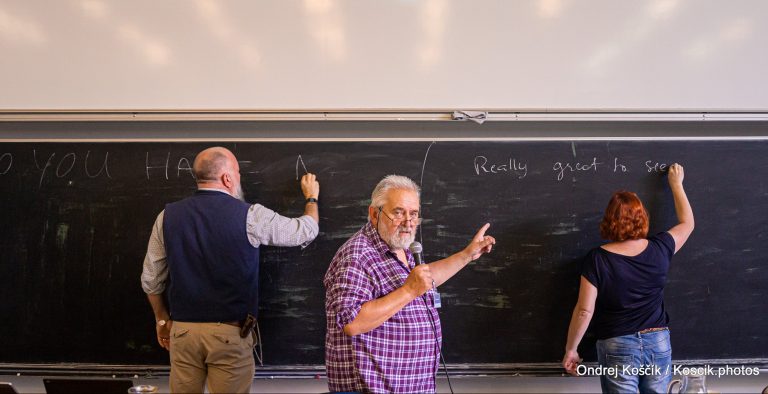HLT.digital is our new project to capture, digitize and make available information about humanistic language teaching approaches for teachers in 21st Century.
Why are we doing this project? What are the needs we plan to address?
As an approach to language learning, Humanistic language teaching (HLT) places the whole person at the centre of the learning process and emphasizes personal as well as academic development. This includes personal values and well-being, emotional engagement, and the building of learner autonomy. Our goal is to capture the body of knowledge contained in the canons of some of the foremost HLT pioneers and practitioners. We believe that this information and knowledge, developed and refined in the last century is even more useful now in a time of online teaching expansion.
HLT began to exert an influence on global classroom practices over fifty years ago with the publication, mostly in the U.K., of a large number of books, journals and newsletters offering a range of teaching/learning activities that explored language learners’ feelings and experiences more fully. Since the ideas of the HLT pioneers were conceived in the pre-digital era many of the materials are currently in danger of being lost or forgotten in hard-copy. We believe their relevance is perhaps even greater today in our online, blended and hybrid learning contexts as widespread use of learning technology has shown us that:
• the well-being of learners and teachers cannot be taken for granted and it plays a crucial role in the learning process, even more in online environment
• social interaction and emotional engagement are more challenging online (e.g. cameras off) than they are in face-to-face teaching/learning
• motivation and autonomy are usually harder to sustain in an online environment.
In pre-digital times, HLT pioneers explored closely related issues. They were also interested in plurilingual approaches to education and in creative and critical thinking long before these became buzz words.
What do we want to achieve by implementing the project?
The HLT ideas were disseminated in pre-digital print media, much of which is now out of print or otherwise unavailable. The information and findings within this field are not just fragmented, but very often not yet available online. We believe it is important to capture that information and those materials (articles, books, interviews with living HLT pioneers and authors, unpublished manuscripts, etc.) and make them widely available online for current and future generations of language teachers to study, explore and to build on. This HLT.digital project will enable current practitioners to connect with these ideas and to explore and select those which are relevant to their own contexts.
The web platform HLT.digital will provide a wide variety of different and maybe contradictory opinions of a range of HLT experts. Through their work and ideas, we will introduce website users to a variety of teaching topics. We are creating a simple “map” of HLT for users, providing initial information and also providing multiple recommendations for further study. There are three main parts of the website we are currently working on:
1. A gallery of HLT experts
This introduces some of the key players through their profiles, links to articles, lists of books published etc.
2. Videos
Recordings of HLT experts answering questions on a variety of teaching topics and interviews about their work and HLT. Short videos will enable teachers to get a quick overview of each expert and to make comparisons of views on a range of topics.
3. Archive
In our project, we will start our work with scanned materials from the HLT practitioner, Mario Rinvolucri, father of the idea of HLT.digital. The main aim is to enable university students to study the notes, materials, comments and articles from across his teaching career, and to explore his ideas as part of their research while preparing for diplomas and writing Masters assignments.
HLT.digital aims to become the platform for the international community of HLT experts, language teachers and language students.
Who are the project partners?
We, The Bridge English Language Centre, are the project coordinators and there are four partners from European countries whose ethos is closely connected to HLT: The London School in Italy, Escuela Oficial de Idiomas de La Orotava in the Canary Islands, The International College in Poland and Swan Communication publishing in the UK.
The project is also supported by major international organizations in the field of language education, such as Eaquals (Evaluation & Accreditation of Quality Language Services), NILE (Norwich Institute for Language Education) and Bell (Bell Educational Services).
Where can you find more information about this project?
For now, you can follow us on the Facebook profile Hlt.digital and later, on our website www.hlt.digital which is currently under development.

